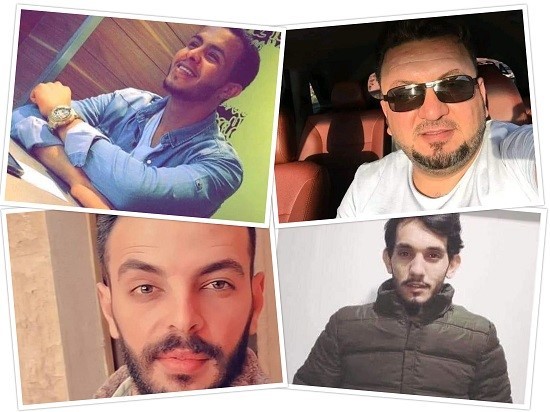AMMAN — Families of the eight Jordanians who perished in a
gas leak in the
Red Sea port city of Aqaba blamed the incident on the
negligence of officials in the port and their non-compliance with safety
regulations in the workplace.
اضافة اعلان
At least 20 tonnes
of chlorine escaped when the cable snapped on a crane loading a tank of the
liquefied gas onto a ship, sending it crashing to the ground on the dockside.
The force of the
fall punctured the pressurized container, enveloping the vessel in a bright
yellow gas. Thirteen people, including eight Jordanians, were killed and
another 250 were injured in the June 29 incident.
Ibrahim Al-Jeddaya
said is 42-year-old brother, Yousef, who died in the incident, worked as a
customs clearing agent at the port for the past 27 years.
A father of four,
he moved from Amman to Aqaba five years ago after having commuted to the port
city from Amman in the earlier years. He was at the port working the day of the
gas leak.
Jeddaya said the
family looked for him in
Aqaba hospitals when it unsuccessfully tried to reach
him on his mobile hours after hearing about the incident in the news.
“We went to the
hospital to look for him and we found out that he was killed,” he said.
 Pictures of four out of eight Jordanians killed in the Aqaba gas leak on June 29. (Photos: Twitter)
Pictures of four out of eight Jordanians killed in the Aqaba gas leak on June 29. (Photos: Twitter)
“Yousef’s death
left my nephews orphaned,” he added. “His 11-year-old child could not believe
the news of his father’s death — he’s still asking about him — while the 4-year-old is still questioning us why
we put soil atop his father’s body.”
He said his brother
often complained about his work conditions and the lack of safety measures to
protect workers, especially since there is dangerous material in the area.
Mohamed Al-Kotkot,
the father of Eyad, 31, another one of the Jordanian victims, who worked as an
operations supervisor for a private firm in Aqaba.
“It is difficult
and we need time to comprehend what happened,” he signed.
He echoed Jeddaya’s
comments, saying his son often complained about the negligence of officials who
are onsite and the complete absence of safety measures.
Amro, another one
of the victims, was the only financial supporter to his mother. His father had
died years earlier and his brother drowned, also in Aqaba, three years ago.
Amor’s uncle,
Yousef said his nephew complained about his work, saying he and other workers
were constantly walking “under containers without knowing what dangerous
material is inside them”.
“The port is a
ticking time-bomb and a worker can be exposed to risks at every moment,” he
charged.
He said although the
deaths were “unfortunate”, he hoped that they would highlight the port’s
shortcomings, primarily the poor and hazardous working conditions.
Yahya Yahya, the
father of 24-year-old Rashid, said his son complained about the working
conditions in the port, to which he moved some months ago. He said his son
worked in the industrial zone for JD200, but took up work at the port because
he was paid JD150 more.
“When he complained
about conditions at the port, I used to tell him to be patient. Life is
difficult and there aren’t many jobs out there. I was waiting for the day when
he would get married,” he said, his voice cracking.
“I built a house
for him, but now his house is in heaven,” he said. “I didn’t expect that this
would be his end.”
On the day of the
gas leak, “we learned from social media about the incident. Our relatives were
calling to ask about Rashid.”
“We were looking
for him from 4:30pm to 10:30pm, when we found his body in the morgue,” he said.
Read more Features
Jordan News



